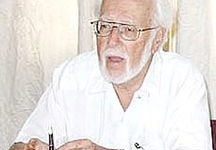October 5, 1992: one step forward, one step backward
October 5, 1992 started a low-intensity civil war which has never abated. This conflict, the effects of which the country is still experiencing, was caused because one political party has never been willing, other than in 2006, to accept its defeat at the polls.
Guyanese have borne enormous sufferings and tragedies because of this singular failure of one of its country’s oldest political parties. The PNC, now the PNCR, has consistently refused to accept defeat. And in the process has waged violence and destruction by concocting all manner of excuses to rile against the election victories of its nemesis, the PPPC.
The failure of the PNC to accept its electoral defeats has led to political violence and political-criminal violence which has resulted in the deaths, murders and rape of innocent persons. It has created fear every time general and regional elections are due to be held.
Guyana will never attract the right kind of investors until the PNCR agrees to play fairly. The PNCR does not play fairly and October 5, 1992 showed that even in the era of free and fair elections, the PNCR wants to win and win on its own terms.
October 5, 1992 saw a devious attempt by the PNCR to prevent the holding of the elections of that day. A mob of PNC supporters assembled outside of the Guyana Elections Commission building, then on Croal Street, began to stone the building, claiming their were disenfranchised.
These protestors were bused in by well-known and identifiable persons, including a businesswomen. This person is still around and the media should interview her about who it was that ordered her to shuttle persons to the Commission.
When it became clear that the PPPC was going to win those elections, another mob, led by a political strongman, gallivanted down Regent Street and began to loot stores. It also set alight another store which led to a massive fire and the destruction of that store.
The then President, under international pressure, put a stop to the violence which was being orchestrated from within his party. He was told in no uncertain manner that unless action was taken the US State Department would be informed. The violence following the elections of 1992 would become a recurring pattern for the aftermath of future elections.
Guyana has never been the same since. In 1997, only in one Region, did some polling agents instead of placing the statement of polls in the ballot boxes, ran off with it to Congress Place. That was the pretext which was then used to claim that the elections were rigged. Violence, looting and arson took place with, once again, businesses on Regent Street being targeted. The PNC refused to accept its defeat and launched a ‘slo fyah, mo fyah’ campaign which led to destruction and anarchy.
The so-called “Troubles” had its roots in political instability which again was caused by the failure of the PNCR to accept its defeat in the 2001 elections. Guyana went through its worst period of violence because this time it saw criminals – so-called “freedom” fighters” who liked to rape women- being used for political purposes. Innocent persons, including a schoolchild were murdered by the beastly criminals. The conscription of criminals to pursue political causes represented a new political low.
All of this happened because of the failure of one political party to accept its defeat at elections. The only time this country has known peace is when that party won elections.
October 5, 1992 ushered in a new era of free and fair elections. But it also ushered in an era of political and criminal instability.
The PNCR has shown no willingness to play fairly. It wants to play by its own rules. When it loses by its own rules, it shifts the goal post. This is exactly what is taking place today.
In 2014, the PNCR and the AFC attempted to move a no-confidence motion to remove the minority PPPC government. The motion was nullified by the prorogation of the National Assembly.
The same PNCR was part of the gambit to use a no-confidence motion to remove to force the resignation of the cabinet and the government in 2014. Four years later, it found itself defeated by the same gambit. It has refused to accept its defeat. It has refused to play by the rule and yet has the audacity to claim that it is abiding by the Constitution. It is, as it has always done, abided by its own interpretation of things.
October 5, 1992 ushered in the era of free and fair elections. But it also had its downside because concurrently it also ushered in the PNCR refusing to accept its defeat. The greatest tragedy, however, is the tens of thousands of cheerleaders who actually support such dishonest and disreputable politics.






















